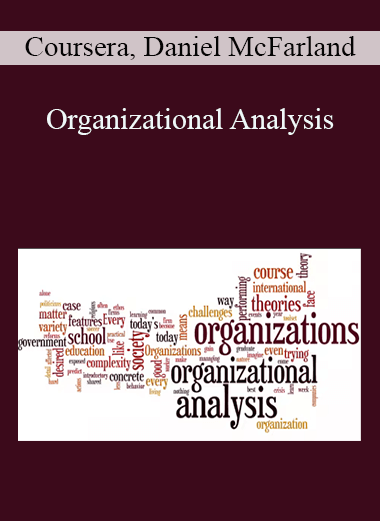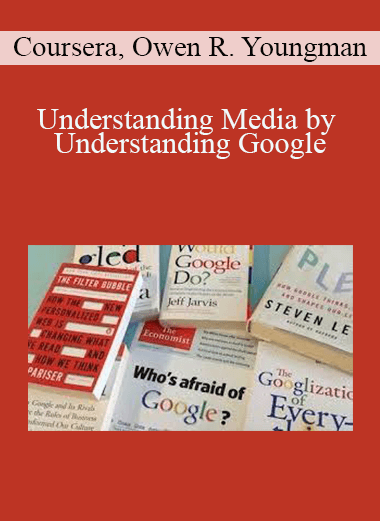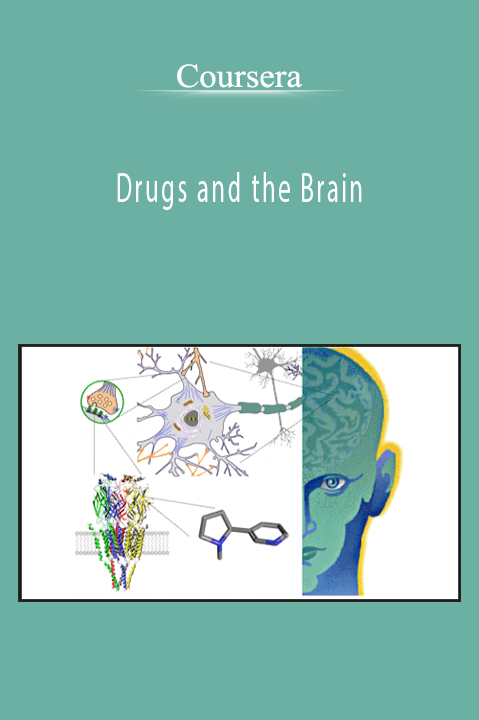Organizational Analysis
By Daniel A. McFarland, Stanford University
In this introductory, self-paced course, you will learn multiple theories of organizational behavior and apply them to actual cases of organizational change.
Organizations are groups whose members coordinate their behaviors in order to accomplish a shared goal. They can be found nearly everywhere in today’s society: universities, start-ups, classrooms, hospitals, non-profits, government bureaus, corporations, restaurants, grocery stores, and professional associations are some of many examples of organizations. Organizations are as varied and complex as they are ubiquitous: they differ in size and internal structure; they can entail a multiplicity of goals and tasks (some of which are planned and others unplanned!); they are made up of individuals whose goals and motivations may differ from those of the group; and they must interact with other organizations and deal with environmental constraints in order to be successful. This complexity frequently results in a myriad of problems for organizational participants and the organization’s survival. In this course, we will use organizational theories to systematically analyze how an organization operates and can best be managed. Organizational theories highlight certain features of an organization’s structure and environment, as well as its processes of negotiation, production, and change. Each provides a lens for interpreting novel organizational situations and developing a sense for how individual and group behaviors are organized. Theories are valuable for the analyst and manager because most organizational problems are unique to the circumstances and cannot be solved by simple rules of thumb. Armed with a toolset of organizational theories, you will be able to systematically identify important features of an organization and the events transforming it; choose a theoretical framework most applicable to the observed mode of organizing; and use that theory to determine which actions will best redirect the organization in desired directions. In sum, the course has three goals: to become familiar with a series of real-world organizational phenomena; to learn different theoretical perspectives that can elucidate these phenomena; and to apply these different ways of “seeing” and managing organizations to cases. In such a fashion, the course is designed to actively bridge theory and practice, exposing students to a variety of conceptual tools and ways to negotiate novel situations.
Syllabus
- Module 1 – Introduction
- Module 2 – Decisions by Rational and Rule-based Procedures
- Module 3 – Decisions by Dominant Coalitions
- Module 4 – Organized Anarchy
- Module 5 – Organizational Learning
- Module 6 – Organizational Culture
- Module 7 – Resource Dependency Theory
- Module 8 – Networks
- Module 9 – Institutional Theory
- Module 10 – Population Ecology and Course Summary
- Final Exam
Get Download Coursera, Daniel McFarland – Organizational Analysis at Offimc.click Now!
Sales page: https://www.coursera.org/learn/organizational-analysis
Archive: https://archive.ph/ycqFV
Delivery Information
- Upon ordering the product, a delivery email with download instructions will be sent immediately to you so that you may download your files. If you log in (or create an account) prior to purchase you will also be able to access your downloads from your account dashboard.
- It is a digital download, so please download the order items and save them to your hard drive. In case the link is broken for any reason, please contact us and we will resend the new download link to you.
- If you don't receive the download link, please don’t worry about that. We will update and notify you as soon as possible from 8:00 AM – 8:00 PM (UTC+8).
- Please Contact Us if there are any further questions or concerns you may have. We are always happy to assist!

















9 reviews for Organizational Analysis – Coursera, Daniel McFarland
There are no reviews yet.